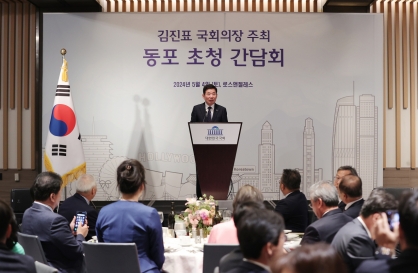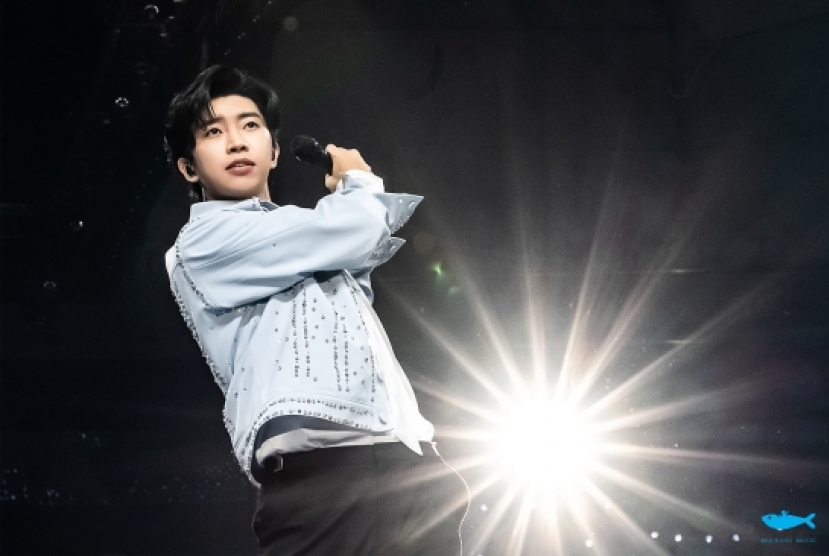New TCS chief envisions greater East Asia initiative
By Shin Hyon-heePublished : Oct. 13, 2013 - 20:27
Despite growing tension among Korea, China and Japan, the Trilateral Cooperation Secretariat could be the cornerstone of an East Asia community that will nurture greater political, economic and cultural exchanges, its new chief Shigeo Iwatani told The Korea Herald.
The Seoul-based organization was launched in May 2011 to promote three-way dialogue, cooperative projects and joint researchs.
But its role is seen confined this year in the face of territorial and historical tension. Neither a summit nor a foreign ministers’ meeting, meant to be an annual event, took place at last week’s ASEAN Plus Three gathering or appears likely any time soon.
Yet Iwatani, a former Japanese ambassador to Austria and Kenya, remains upbeat about the institution’s long-term outlook. As the head of a de facto single platform in operation for tripartite networking and teamwork, he managed to attend the ASEAN Plus Three summit in Brunei on Thursday thanks to the help of the Southeast Asian association.
“An organization that fosters cooperation between Korea, China and Japan, the TCS is unique in that it deals with issues in which they are highly interested and discusses ways to have them work together,” Iwatani said in a recent interview.
The Seoul-based organization was launched in May 2011 to promote three-way dialogue, cooperative projects and joint researchs.
But its role is seen confined this year in the face of territorial and historical tension. Neither a summit nor a foreign ministers’ meeting, meant to be an annual event, took place at last week’s ASEAN Plus Three gathering or appears likely any time soon.
Yet Iwatani, a former Japanese ambassador to Austria and Kenya, remains upbeat about the institution’s long-term outlook. As the head of a de facto single platform in operation for tripartite networking and teamwork, he managed to attend the ASEAN Plus Three summit in Brunei on Thursday thanks to the help of the Southeast Asian association.
“An organization that fosters cooperation between Korea, China and Japan, the TCS is unique in that it deals with issues in which they are highly interested and discusses ways to have them work together,” Iwatani said in a recent interview.

“There are other regional initiatives such as ASEAN but in the long run, with the TCS we can develop a process that can ultimately lead to a greater East Asia community.”
A 62-year-old career diplomat, Iwatani took the helm at the TCS in September for a two-year term, succeeding its inaugural secretary-general Shin Bong-kil who is now Korea’s ambassador for East Asia cooperation.
The self-possessed, soft-spoken ambassador has taken up various key posts including consul-general in Honolulu, embassy minister in Berlin and director for abandoned chemical weapons at the Cabinet Office.
One month into the job, Iwatani is focusing on searching for the areas in which the three countries join hands and how to knit them together. He has met with and listened to scores of diplomats, scholars and journalists here and is planning to visit Beijing and Tokyo soon to trade views with officials there.
But a thaw in their relations still seems a distant future. Tension between China and Japan in the East China Sea is showing no sign of abating, while the Shinzo Abe administration’s sweeping rightward drift and revisionist remarks have raised alarm in Seoul and Beijing.
“When I informed my acquaintances of my new position before leaving, everybody was worried because of the difficult diplomatic situation,” the secretary-general said.
“But shortly I realized that my job is not to find where the sides clash and how to resolve it, but to figure out where they can agree and how to help them team up better. So I think I’ll be able to work with more optimism and a future-oriented mind.”
The three countries raised the secretariat’s budget and their equal contributions by 50 percent starting this fiscal year. They aim to beef up its 20-member workforce to up to 26 by the end of the year and about 100 in 10 years.
Journalist and lawmaker exchanges are some of the potential new projects in his mind. Looking far into the future, investing in youth programs such as internships is critical in stimulating dialogue among younger generations, Iwatani said.
“Youth exchanges are necessary as their lack of direct experience of war and limited historical knowledge may result in misjudgment and mistakes in the future,” he said. “It would help them learn more about history to travel to other countries and listen and speak to the people there.”
With a slew of mega trade deals in progress, the negotiations may lead to greater concessions from each country, he said, which in turn would bring a positive impact on the three-way free trade agreement and other mechanisms.
Korea, China and Japan held the second round of talks for a trilateral pact in August. All of them are involved in the Regional Comprehensive Economic Partnership designed to link the ten ASEAN states and their six partners, while Japan newly joined the U.S.-led Trans-Pacific Partnership this summer.
“But I believe such efforts should be expanded and ultimately bring about an economic coalition for the whole of East Asia,” Iwatani added.
By Shin Hyon-hee (heeshin@heraldcorp.com)
A 62-year-old career diplomat, Iwatani took the helm at the TCS in September for a two-year term, succeeding its inaugural secretary-general Shin Bong-kil who is now Korea’s ambassador for East Asia cooperation.
The self-possessed, soft-spoken ambassador has taken up various key posts including consul-general in Honolulu, embassy minister in Berlin and director for abandoned chemical weapons at the Cabinet Office.
One month into the job, Iwatani is focusing on searching for the areas in which the three countries join hands and how to knit them together. He has met with and listened to scores of diplomats, scholars and journalists here and is planning to visit Beijing and Tokyo soon to trade views with officials there.
But a thaw in their relations still seems a distant future. Tension between China and Japan in the East China Sea is showing no sign of abating, while the Shinzo Abe administration’s sweeping rightward drift and revisionist remarks have raised alarm in Seoul and Beijing.
“When I informed my acquaintances of my new position before leaving, everybody was worried because of the difficult diplomatic situation,” the secretary-general said.
“But shortly I realized that my job is not to find where the sides clash and how to resolve it, but to figure out where they can agree and how to help them team up better. So I think I’ll be able to work with more optimism and a future-oriented mind.”
The three countries raised the secretariat’s budget and their equal contributions by 50 percent starting this fiscal year. They aim to beef up its 20-member workforce to up to 26 by the end of the year and about 100 in 10 years.
Journalist and lawmaker exchanges are some of the potential new projects in his mind. Looking far into the future, investing in youth programs such as internships is critical in stimulating dialogue among younger generations, Iwatani said.
“Youth exchanges are necessary as their lack of direct experience of war and limited historical knowledge may result in misjudgment and mistakes in the future,” he said. “It would help them learn more about history to travel to other countries and listen and speak to the people there.”
With a slew of mega trade deals in progress, the negotiations may lead to greater concessions from each country, he said, which in turn would bring a positive impact on the three-way free trade agreement and other mechanisms.
Korea, China and Japan held the second round of talks for a trilateral pact in August. All of them are involved in the Regional Comprehensive Economic Partnership designed to link the ten ASEAN states and their six partners, while Japan newly joined the U.S.-led Trans-Pacific Partnership this summer.
“But I believe such efforts should be expanded and ultimately bring about an economic coalition for the whole of East Asia,” Iwatani added.
By Shin Hyon-hee (heeshin@heraldcorp.com)



![[AtoZ Korean Mind] Does your job define who you are? Should it?](http://res.heraldm.com/phpwas/restmb_idxmake.php?idx=644&simg=/content/image/2024/05/06/20240506050099_0.jpg&u=)














